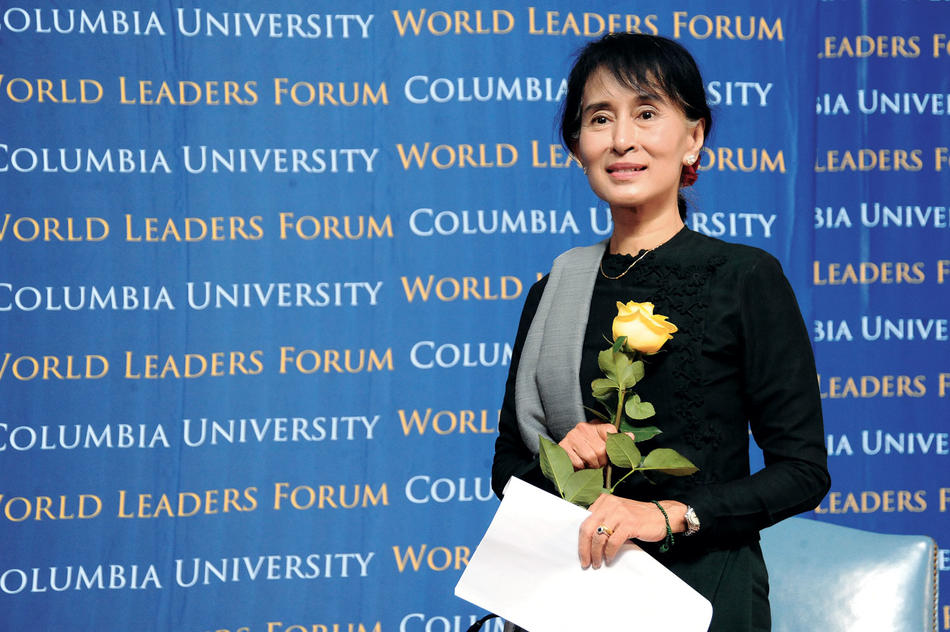Aung San Suu Kyi, the leader of Burma’s pro-democracy opposition party, who spent most of the past two decades under house arrest because of her political activism, came to Columbia to participate in its World Leaders Forum on September 22. Her appearance in Morningside Heights was part of Suu Kyi’s first visit to the US since being freed in 2010.
President Lee C. Bollinger, upon introducing Suu Kyi to a packed audience in the Low Rotunda, presented her with a rose. The gesture was symbolic: the late Václav Havel, the Czech dissident writer who became president of his country and who was an artist in residence at Columbia in 2006, had often spoken of wishing to meet her, at which time he said he would give her a single stem. Said Bollinger to Suu Kyi: “Havel understood so well that you provided hope to oppressed people, not only in your own country, but around the globe.”
Suu Kyi, a Nobel Peace Prize winner elected to Burma’s parliament last year, then sat down for a conversation with NBC News correspondent Ann Curry. She reflected on her life growing up in Burma when it was a democracy newly independent from Britain; the 1962 military takeover that turned the country into one of the world’s most isolated and impoverished; recent steps taken by the military to loosen its grip on the country; and the current need to rebuild Burma’s schools, its financial and banking sector, its judiciary, and nearly all other civilian institutions. “Everything, of course, is in ruins,” she said, “which gives us the chance to build everything up from scratch.”
Following her talk, Suu Kyi spent half an hour answering students’ questions.
Are there certain skills, one student asked, that are especially needed in Burma? “We need good lawyers,” Suu Kyi said.
What parts of the Burmese economy need urgent attention? “Agriculture,” she said. “Food security is going to be a greater and greater concern.”
Could she offer advice to young aid workers? “If you really want to come to help Burma, you must do it with a sense of humility,” she said. “The Burmese are a proud people. The fact that they’re poor [and] uneducated does not mean that they like being treated as poor, uneducated people.”
Do Burmese emigrants to the US have a special responsibility to their native country? “You can help if you want to,” she said. But “even if you do not want to help Burma, as long as you are a good citizen of this country, I’m satisfied, because at least you will be a credit to our country ... People have the right to choose their own lives.”



